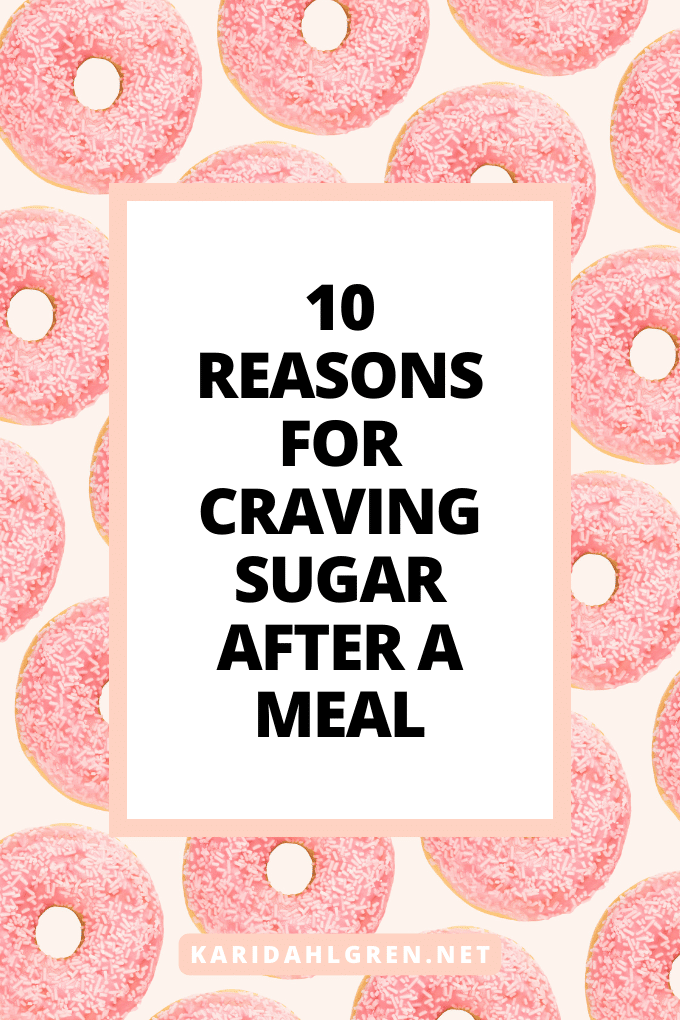
If you crave sugar after a meal, standard advice will tell you to look at your habits or blood sugar levels. While this is helpful, it’s far from a complete answer as it skips very interesting points about eating psychology and even Eastern medicine. After years working as an eating psychology coach and also working alongside an herbalist, I’ve learned a thing or two about that nagging question, Why do I crave sugar after a meal?
Today, we’re digging into all possible reasons for post-meal sugar cravings—backed by science. Some points touch upon the body’s biological and psychological response to sugar while other points pull from the wisdom of Eastern medicine—also backed by science. There’s something in here for everyone, so let’s dive in.
The Whole Picture: Why Do I Crave Sugar After a Meal?

Cravings, including the desire for sugar after a meal, are honestly part of our humanness. Biologically, our bodies are wired to seek out pleasurable and energy-dense foods, like those high in sugar.
Part of this stems from our innate predisposition to “seek pleasure and avoid pain.”[1] An enormous body of clinical evidence also shows that sugar activates the reward centers of the brain, causing a feedback loop that triggers even more sugar cravings.[2], [3], [4], [5]
But the answer to the pervasive question—why do I crave sugar after a meal?—also goes beyond brain science. From a Traditional Chinese Medicine (TCM) perspective, imbalances in the body’s energy systems, specifically a “spleen qi deficiency,” can lead to cravings for sweets after a meal.[6], [7]
Biology and Eastern medicine aside, eating psychology can also have a powerful impact on sugar cravings. For instance, in a novel study on the psychology of dietary restrictions, researchers found that people crave chocolate more when they actively resist it.[9]
Taking a holistic view of all possible triggers—from biology to psychology to Eastern medicine—is essential to address the question ‘why am I craving sweets after most meals?’ The rest of this article will provide a more in-depth look into these areas to provide a detailed guide on the intricacies of sugar cravings.
Biological Triggers for Craving Sugar After a Meal
Understanding the biological triggers for sugar cravings can be immensely valuable if you’re seeking to improve your health and well-being. It’s about understanding how hormonal changes, neurotransmitter activities, and metabolic processes can drive cravings for sweet treats.
Here are some biological reasons for craving sugar after a meal:
1. Blood Sugar Imbalance
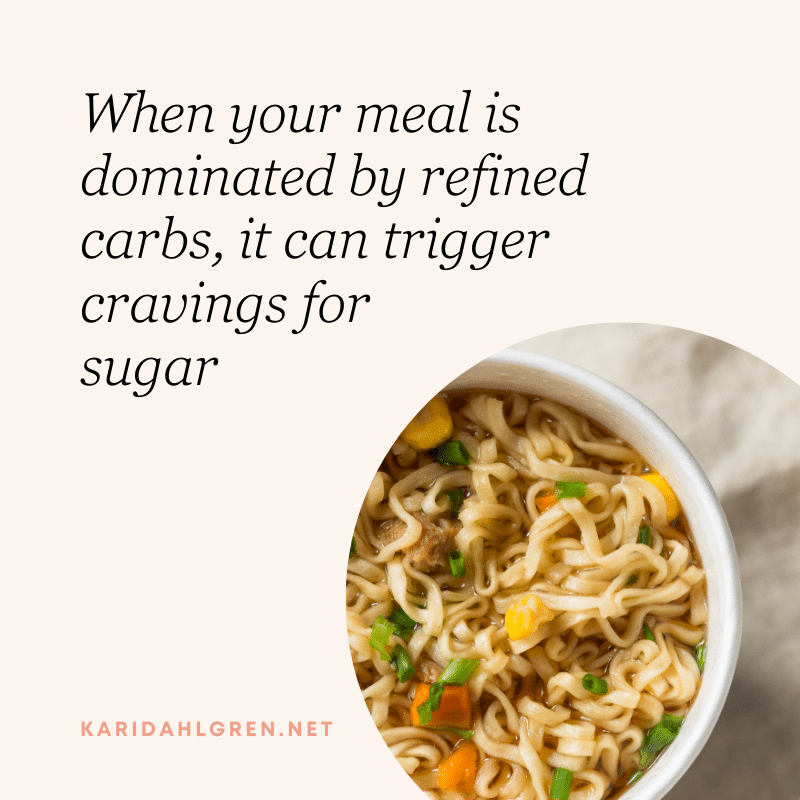
When you indulge in a meal rich in refined carbohydrates—think white breads or instant noodles—it can disrupt your blood sugar balance, setting the stage for sugar cravings. If you find yourself wondering—why do I crave sugar after a meal?—try reflecting on the meal itself.
Eating foods high in refined carbs or simple sugars leads to a swift surge in blood sugar. To counter this, your body releases insulin, aiming to normalize sugar levels. However, this process can sometimes be overzealous, causing blood sugar to dip below the desired level—a condition known as reactive hypoglycemia.[10] This sudden drop in blood sugar stimulates cravings for quick-energy sources like sugary treats.
Tips for blood sugar-related sugar cravings: To maintain a stable blood sugar level and ease cravings for sugar after a meal, try to consume well-rounded meals that incorporate complex carbohydrates, fiber, lean proteins, and/or beneficial fats. Clinical evidence shows that protein in particular has a strong effect on glycemia control.[11]
2. Dopamine Release
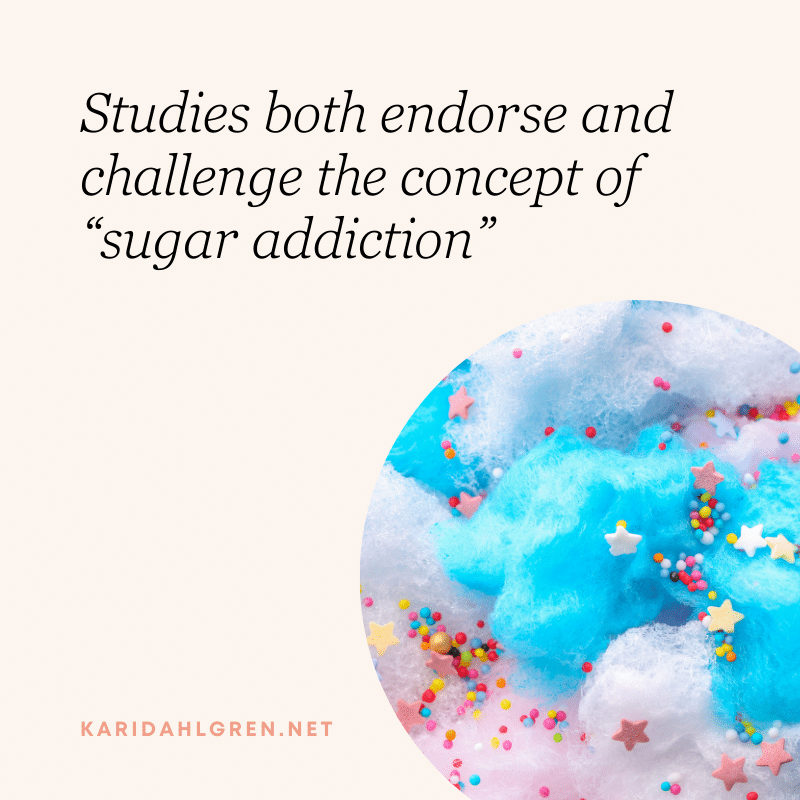
Sugar causes the release of dopamine, a neurotransmitter associated with pleasure and reward in the brain.[12] This dopamine release creates a positive sensation that reinforces the desire for sugar. Indulging in sweet treats after a meal results in a temporary surge of pleasure, which can lead to future cravings.
A substantial body of clinical research suggests a connection between sugar consumption and addictive behaviors.[12], [13], [14], [15] Yet, some studies cast doubt on this association, citing a “lack of evidence” in support of sugar addiction.[16] However, instead of continuing the debate, it might be more helpful to contemplate how the idea of sugar addiction impacts your own behavior.
Tips for brain chemistry-related sugar cravings: Ask yourself, does the concept of ‘sugar addiction’ make you feel empowered to conquer unwanted sugar cravings, or does it make you feel resigned in the presence of sweets? If it’s the latter that resonates with you, I advocate concentrating on unpacking the psychology behind sugar cravings, which we will dig into soon.
3. Stress and Sugar Cravings
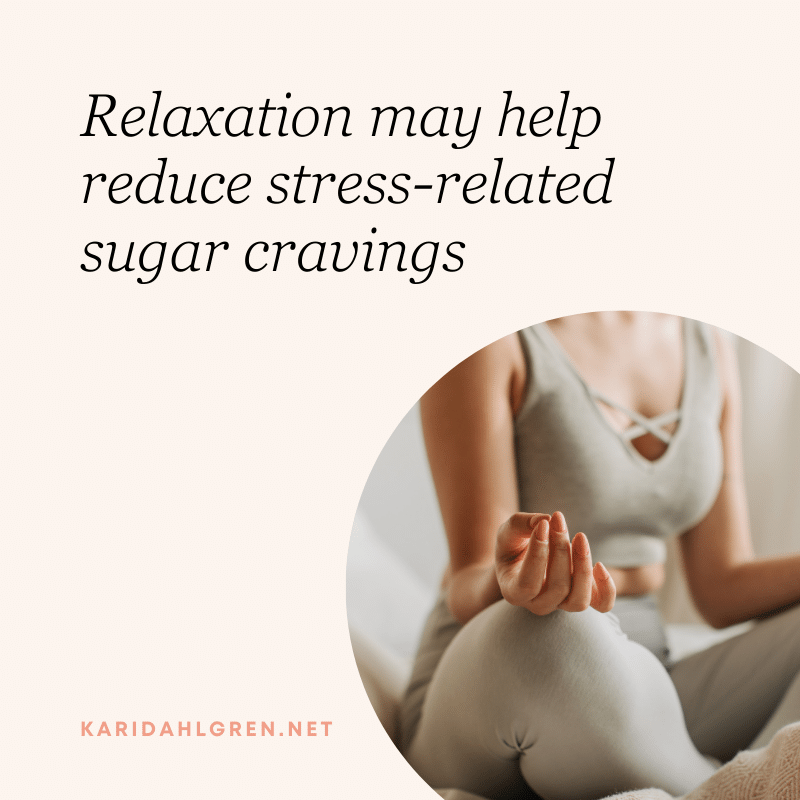
Chronic stress is a significant contributor to sugar cravings.[17] To compound the problem, people who are currently dieting (“restrained eaters”) are prone to have an even greater craving for sugar in the face of stress.[18] The next time you catch yourself wondering, why do I want something sweet after I eat?, take inventory of any food rules or intentions of dieting.
Tip for stress-related sugar cravings: If you’re dealing with chronic stress, do what you can to relax as often as possible. While stress is linked to sugar cravings, relaxation is linked to a reduction in emotional eating.[19] Without the added burden of stress, individuals are better equipped to cope with emotions without reaching for sugar.
4. Sleep and Cravings for Sweets
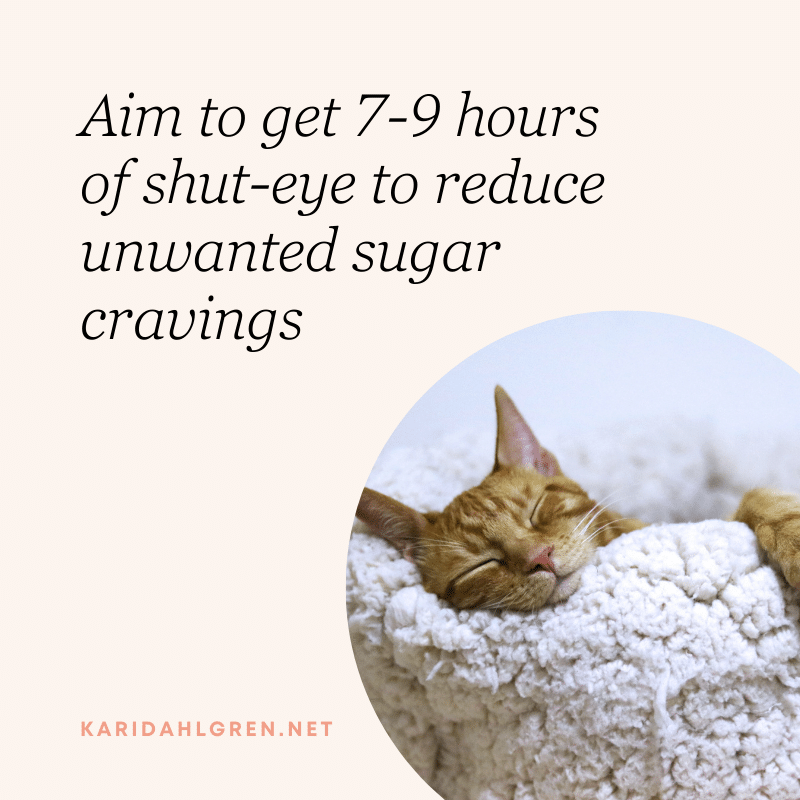
Sleep deprivation is emerging as a potent factor that can contribute to sugar cravings, specifically in its impact on appetite-related hormones. Leptin is a hormone that helps regulate appetite by signaling fullness to the brain when it’s time to stop eating. Leptin levels can be affected by poor sleep, potentially leading to an increased appetite and cravings for sweets.[20]
Tips for sleep deprivation-related sugar cravings: To help promote balanced metabolic hormones, aim for 7-9 hours of sleep each night, recommended for adults by the US National Sleep Foundation.[20]
How Eastern Medicine Views Cravings for Sweets After a Meal
Up next, we’ll dive into the Eastern medicine perspective on post-meal sugar cravings as it poses an interesting contrast to the Western take. If you’re constantly asking yourself—why do I crave sugar after a meal? — Eastern medicine offers a fresh perspective.
5. “Spleen Qi Deficiency”
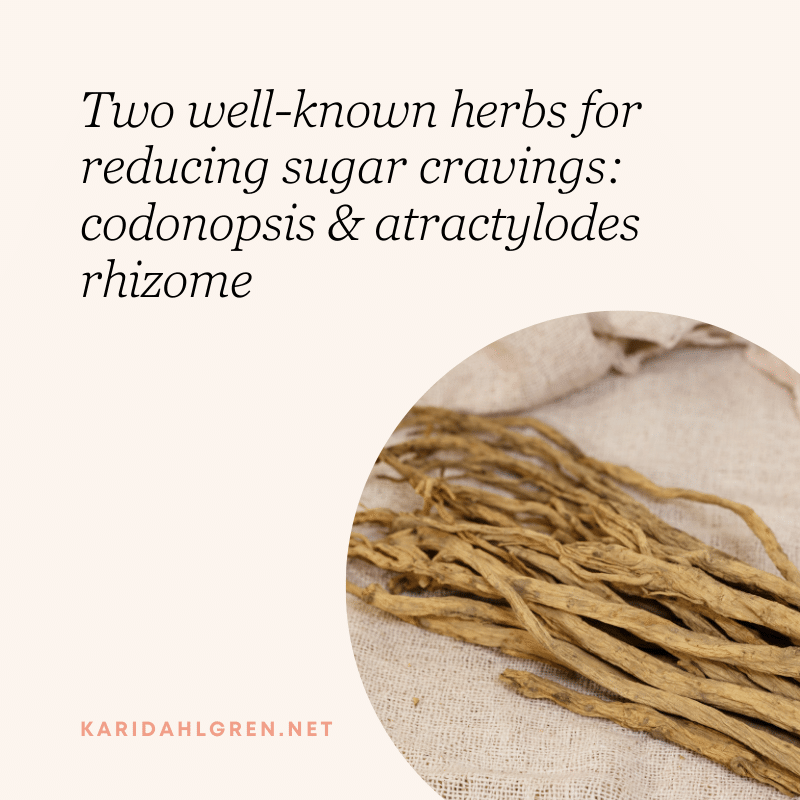
According to Traditional Chinese Medicine (TCM), the spleen is considered one of the key organs responsible for digestion and nutrient absorption. However, in Eastern medicine, the spleen is not viewed in the same way as it is in Western medicine. Rather, the spleen is conceptualized as an energetic entity that plays a strong role in digesting food and extracting energy, or qi (pronounced “chee”).
When there is a deficiency in spleen qi—commonly referred to as a spleen qi deficiency—it can cause poor digestion and inadequate nutrient absorption.[6], [7], [21] This deficiency often manifests as cravings for sugar after a meal.[8]
Eating too many sweets is believed to damage the spleen, potentially leading to a vicious cycle as a weak spleen triggers sugar cravings and resulting sugar consumption further weakens the energetic entity. Fortunately, a spleen qi deficiency can often be improved through acupuncture and/or Chinese herbs.
Tips for Spleen Qi Deficiency-Related Sugar Cravings: To address spleen qi deficiency and reduce sugar cravings from a TCM perspective, focus on supporting the spleen’s function and promoting healthy digestion. This can be achieved through the following tips:
- Diet Therapy: The foods you eat greatly impact the spleen. Try to avoid consuming too many sweets while increasing spleen-supporting foods like lentils, squash, sweet potatoes, dates, and ginger.
- Acupuncture: Acupuncture is believed to effectively harmonize and enhance spleen qi, addressing deficiency by stimulating specific energy pathways to boost digestion and overall vitality.[22]
- Chinese herbs: Codonopsis and atractylodes rhizome are two Chinese herbs well-known for their ability to improve spleen qi deficiency.[23], [24] You can work with an acupuncturist or herbalist to find the right dosages for you.
I also want to emphasize that Chinese herbs are a crutch like any other medicine—albeit an all-natural one, making them more attractive to individuals interested in alternative remedies. Still, herbs don’t address the psychology behind sugar cravings, which is necessary for a well-rounded and holistic approach. Let’s dive into that next.
Psychological Triggers for Sugar Cravings After a Meal
Delving into eating psychology to understand sugar cravings provides a holistic approach, revealing that these cravings often stem from more than just physical hunger. It explores how emotions, stress, and ingrained habits can influence dietary choices, offering deeper insights into the root causes of cravings.
Here are some common psychological reasons for craving sugar after a meal:
6. Making Sugar “Off Limits” Makes You Want It More
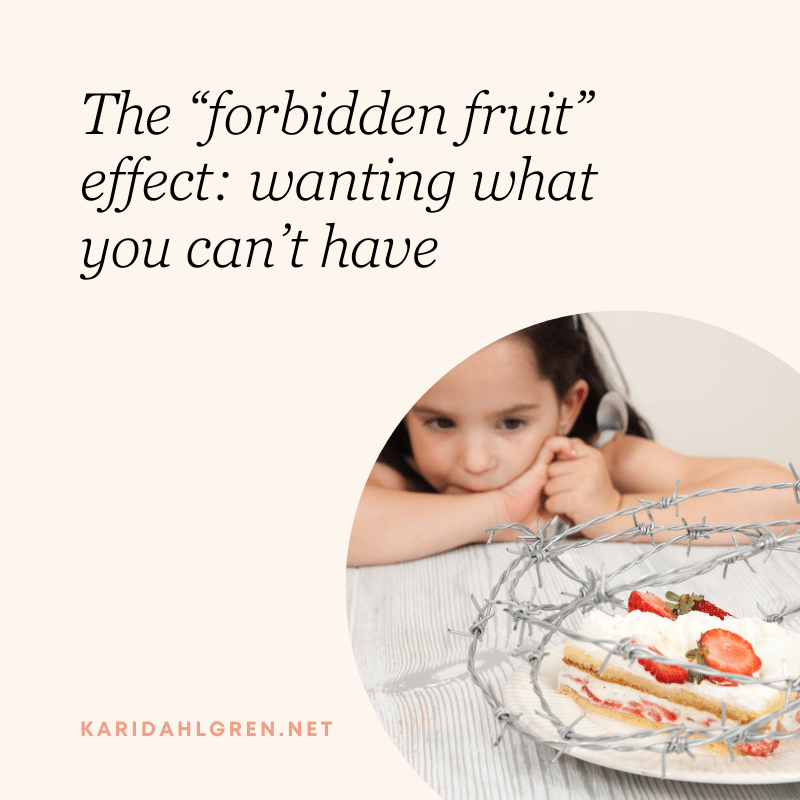
Do you ever feel like you tend to crave more sweets and so-called “junk food” when you’re on a diet? This is a clinically proven phenomenon. Studies show that when specific foods are put off-limits, it makes you want them even more.[9], [25], [26] The next time you find yourself wondering, Why am I craving sugar after a meal?, take inventory of any food rules that might trigger the “forbidden fruit” effect.
Tips for managing food rules-related sugar cravings: Instead of placing sugar entirely off-limits, consider intuitive eating, where all foods are allowed and the emphasis is placed on listening to your body instead. Studies show that intuitive eating benefits both physical and mental well-being, making it well worth exploring.[27]
Unravel the psychology of sugar cravings: Take my quiz to discover your eating psychology strength and address the root cause of sugar cravings. Click here to take the eating psychology quiz now.
7. Cravings for Sugar After Dinner May Indicate Undereating
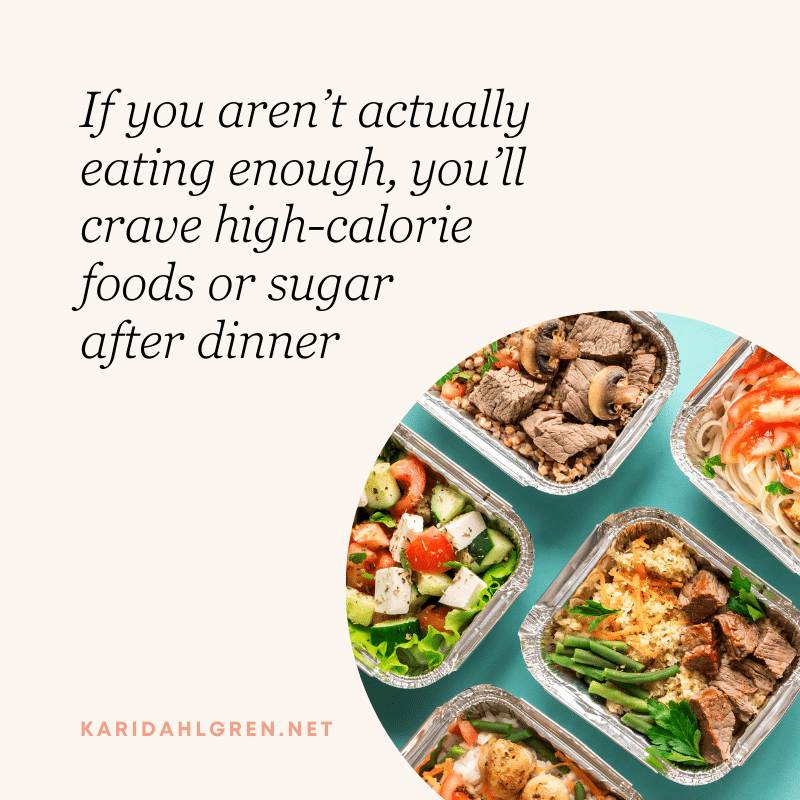
If you find yourself craving sweets particularly after dinner, it’s worth examining your meal sizes. For individuals with a long history of excessive dieting, habitual undereating may distort your perception of what “normal eating” is.
When you don’t eat enough, your body instinctively seeks energy through cravings for high-calorie, sugary foods.[28] The next time you catch yourself pondering, Why do I crave sweets after dinner?, ask yourself if you’ve actually eaten enough.
Tips for these sugar cravings: Reflect on your daily eating patterns and ensure your meals are well-balanced and satisfying. In other words, if all you had for dinner was a chicken breast with broccoli, you should probably eat more.
8. What If You Have Eaten Enough? Post-Dinner Cravings May Indicate Emotional Eating
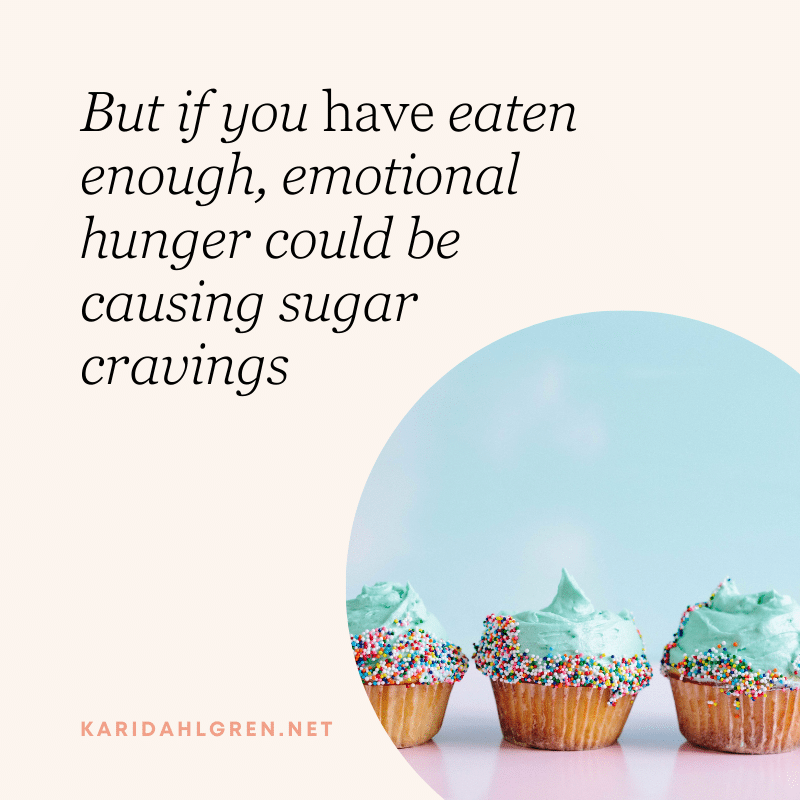
But what if you have eaten enough and still crave sweets after dinner? In this case, emotional eating is likely to be the culprit. When physical hunger has been clearly satisfied, addressing emotional hunger is the next step.
Tips for addressing emotional eating-related sugar cravings: If you find yourself craving sugar after dinner, or if you’re prone to binging on sugar, utilize my Stop, Drop, & Feel technique. This tool helps shed light on any underlying discomfort that might be fueling the desire to eat past fullness.

The Stop, Drop, & Feel starts with a promise that you can still have sweets if that’s still what you really want—this honors the element of permission to prevent the “forbidden fruit” effect. But before sinking your teeth into sugar, meditate on your feelings for just two minutes. This promotes emotional awareness and emotional tolerance, two necessary skills for stopping a sugar craving in the presence of purely emotional hunger.
Explore the spiritual roots of sugar cravings: If you struggle with emotional eating, then you’ll love my free ebook, The Spiritual Seeker’s Guide to Stop Binge Eating. It reveals deeper spiritual insights to help you break free from unwanted cravings and feel normal around food again.
9. Unsatisfying Meals Can Trigger Cravings for Sweets After Dinner
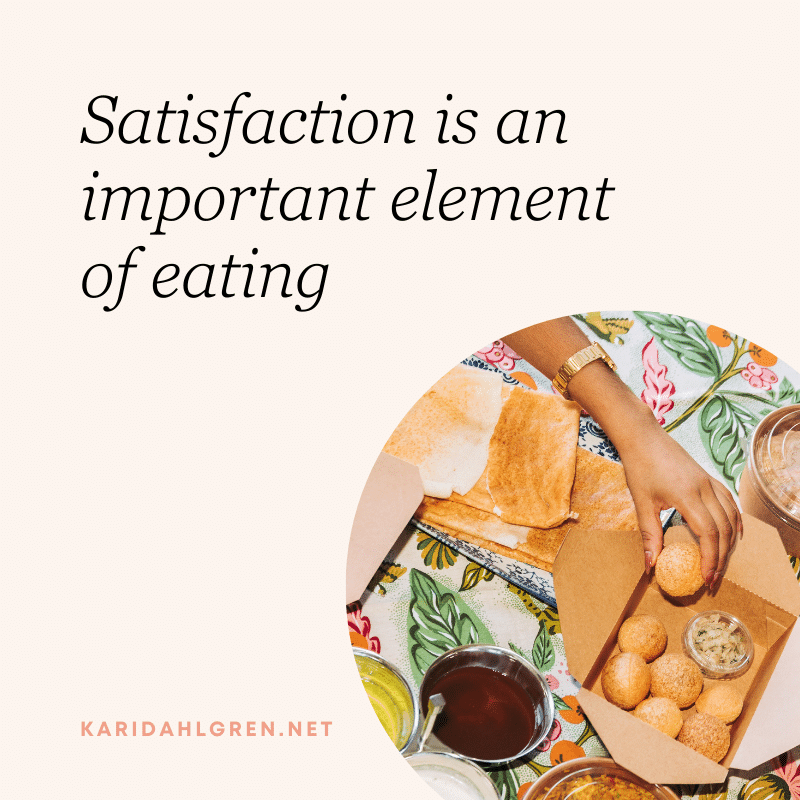
Sometimes cravings for sugar after dinner can stem from a lack of satisfaction from dinner itself. Satisfaction is an important element in eating, and when it’s lacking, it’s normal to crave something pleasurable like sugar.[29] A great benchmark to look for is feeling full but not satisfied after eating. This can indicate a need for better-tasting foods or a better eating experience.
Tips for satisfying meals: Satisfaction can come from a variety of factors including the cooking experience, the social experience of eating, and the taste of food itself. When possible, try to focus on incorporating pleasure into your meals and see if it helps reduce cravings for sugar after eating.
10. Sugary Snack Habits
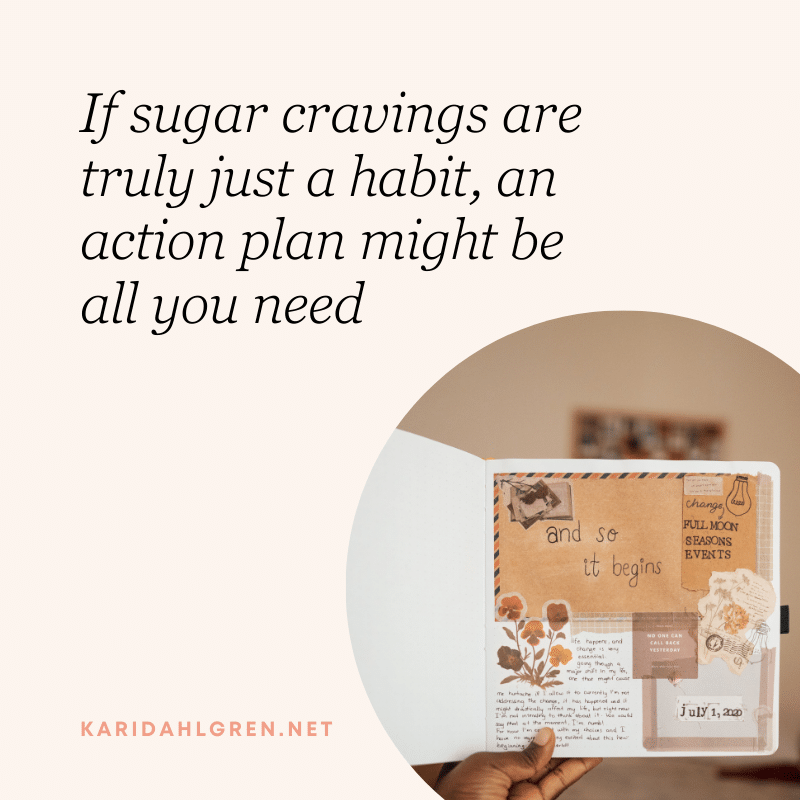
Finally, let’s explore the psychology of habits. Do you tend to follow every meal, or at least dinner, with a sweet treat? Dessert is a customary habit for many of us, and it can become deeply ingrained.
There is nothing wrong with following dinner with dessert if you’re still hungry and it’s what your body craves! However, if sugar doesn’t make you feel good, it can increase eating-related stress, which is another trigger for sugar cravings, leading to a vicious cycle.
Tips for breaking an unwanted sugar-habit: An encouraging study out of New Zealand revealed a dramatic decrease in sugar intake among participants, dropping from 1,662 grams to 362 grams weekly—a staggering reduction achieved through self-monitoring and identifying non-food coping mechanisms.[30] If you want to break a sugar habit, creating an action plan could be an underrated and effective strategy.
Biology, Psychology, & TCM: Unraveling the Many Reasons for Sugar Cravings
Finally, let’s loop everything back around to the question that started it all: why do I crave sugar after a meal? By now, it’s clear that the answer is not one-dimensional. Whether it’s the biological allure of sugar, the psychological effect of wanting what you can’t have, or a “spleen qi deficiency,” each perspective offers valuable insights.
Remember, craving sugar after a meal is a common and human experience. By integrating the wisdom of both modern science and ancient practices, you’re well on your way to finding a delicate balance between your body’s needs and your taste buds’ desires.


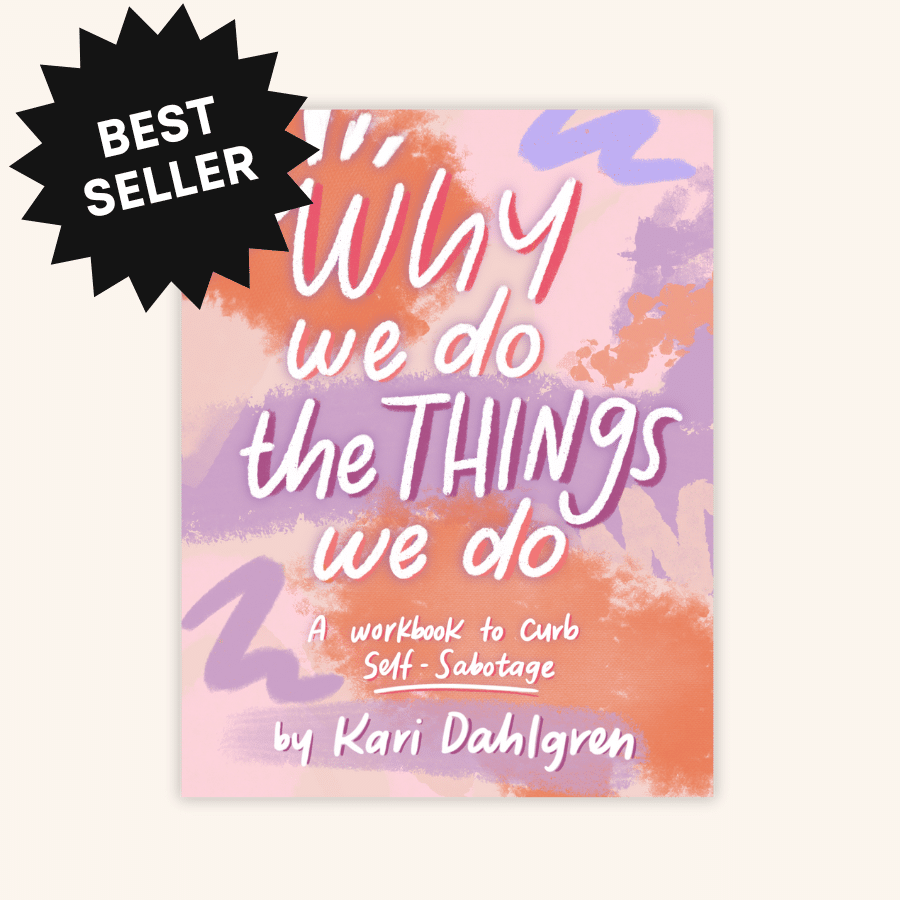
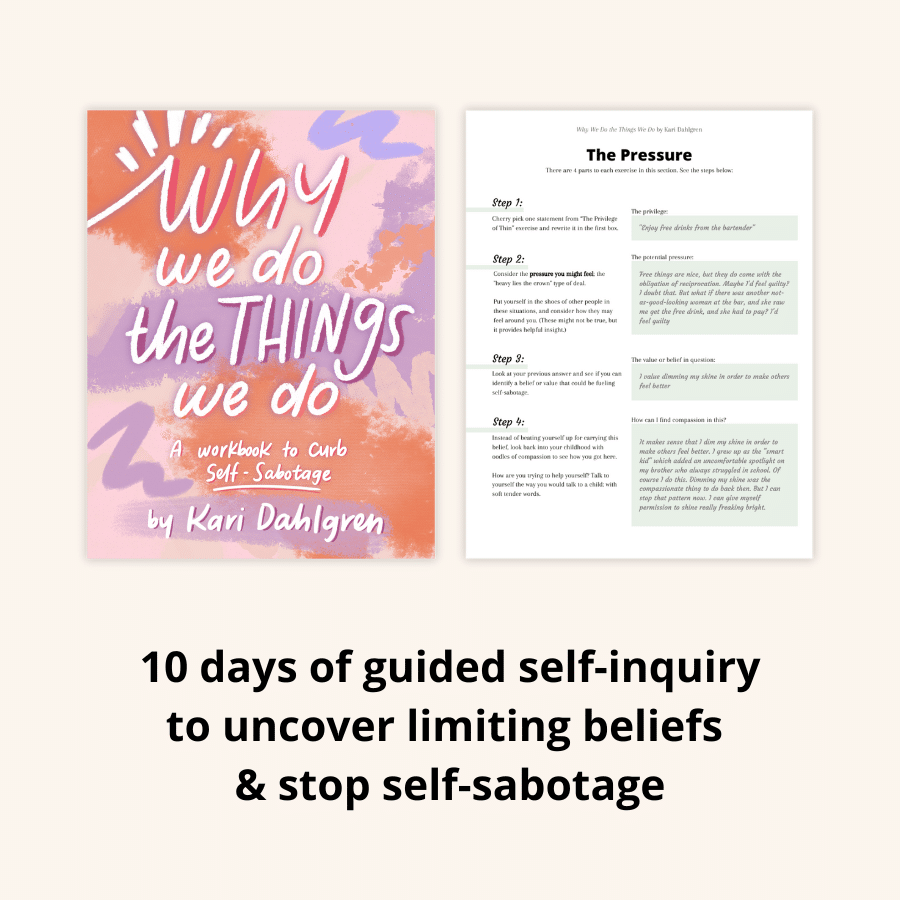
Thank you Kari for this insightful article! I would love to consult a herbalist and learn more about this. I couldn’t agree more about stress and lack of sleep affecting my sugar cravings. Thanks for the information. Your work has helped my so much.
It always makes me happy when I can point someone in the right direction 🙂 I am glad TCM has piqued your interest and can’t wait to hear more!
Hi Kari,
In the video you say for every restrict there is a binge but how do you learn to manage cravings so you don’t feel that you’re restricting constantly but also managing a love for food?
Hi Scarlett! You asked a great question, and I’ve actually written about it on the blog and talked about it in another video. I recommend this post on when food is love and my video on overeating when food tastes really good. I’d be happy to help if these resources inspire further questions!